I'm caught up in how religions around the world are stoking turmoil, even though the teachings of those religions say "love your neighbor," and all of them have the "do unto others..." Golden Rule. And I've decided that fundamentalism is the problem. I think the rainbow of religions on this planet is a delight -- except for the fundamentalists in each. Perhaps there are "different strokes for different folks" fundamentalists, but it seems to me that, in a nutshell, a fundamentalist (Christian, Jew, or Muslim) believes, "I am correct in my understanding of God, and you are wrong"... and then proceeds to intrude into the lives of people who see their relation with God differently.
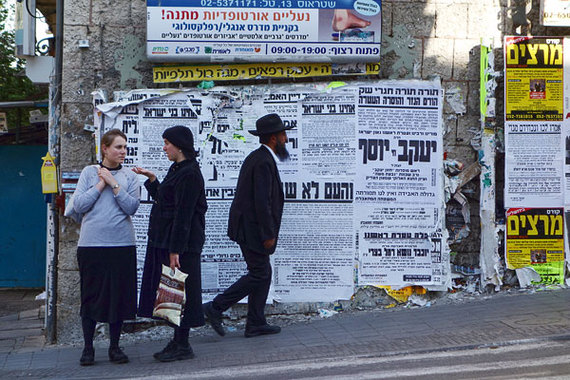
Roughly 8 percent of Israeli Jews are ultra-Orthodox -- very religious and living lives that require them to be apart in many ways. Entire districts of Jerusalem -- such as Mea Shearim -- are known as ultra-Orthodox. In Mea Shearim, people are dressed very conservatively. Women's stores have a huge selection of wigs, hats, and scarves, because after marriage, Orthodox women must cover their hair in public. (If someone can explain to me the Jewish notion that a woman can't show her hair in public for reasons of modesty, but she can wear a wig and still look great, I'm all ears.)
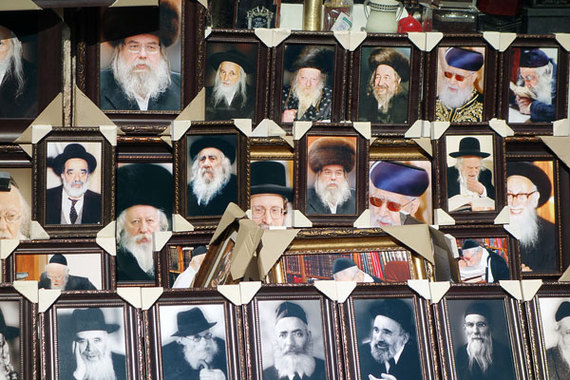
Among ultra-Orthodox Jews, there are many groups who follow different teachers or rabbis. Many rabbis are charismatic and have huge followings. (One died the day we arrived in Jerusalem, and the streets of the city were at a standstill as thousands came out to mourn.) In the ultra-Orthodox neighborhoods of Jerusalem, storefronts are lined with posters and paintings of the top rabbis; a quick survey tells you which rabbis are the most popular. (Just as Baptists love the "Behold, I stand at the door and knock" painting, people here display paintings of The Second Temple before its destruction.) It got me thinking about other charismatic religious leaders, and how many Evangelical Christians are also more likely to be caught up in the teachings of a particular dynamic minister. Meanwhile, in both Christianity and Judaism, mainline worshippers have a spiritual keel provided not by an individual, but by a steady liturgy or theology that doesn't flex with the comings and goings of various leaders.
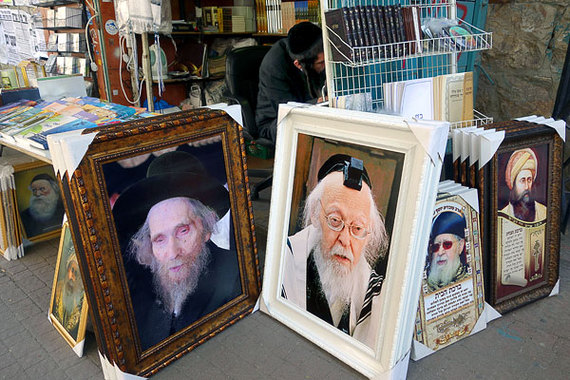
Leading rabbis or teachers have their own styles and set the standards of orthodoxy for their followers. You can identify who follows whom by which bit of the Torah they embrace with the most abandon. This rabbi on the right takes literally the Old Testament command to wear the Holy Scripture on your forehead, proclaiming your love of God -- and so, then, do his followers, when they come for morning services.
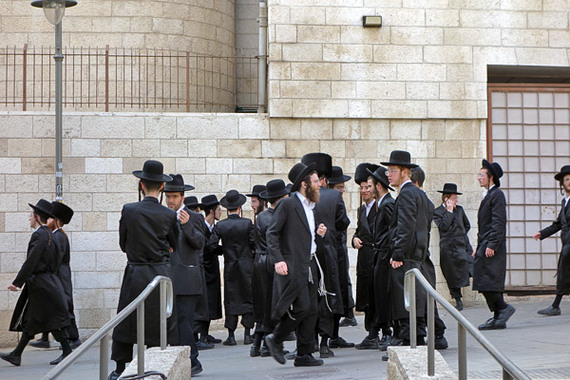
The diversity of Israel -- both ethnic and religious -- shows itself in the way people dress and wear their hair. This is especially evident in places of worship and in ultra-Orthodox neighborhoods. With the help of a local guide, simply people-watching comes with fun cultural insights. To illustrate and better understand this, we filmed a montage of people with different clothing and hairstyles. Then we got our guide to take us on a fascinating tour of religious fashion in Jerusalem, with commentary like this: "The yarmulke is a constant reminder that God is always above us. The ear locks are because some embrace the scripture that says don't cut the hair on the side of your face. Men wear black as a symbol of mourning of the destruction of The Temple nearly two thousand years ago. The black top hats come in many varieties, and from them, you can guess which specific brand of Orthodoxy they profess....and, in some cases, which country they emigrated from."
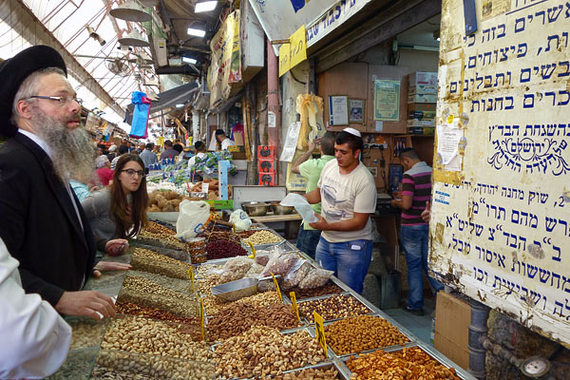
Religions traditions reach well into the colorful markets of Israel. While the casual tourist (who doesn't read Hebrew) would likely be oblivious to the fine points, shops like this attract a certain market segment by posting seals of approval certifying that the goods here are not just kosher, but perfectly in line with the standards of one specific rabbi's supervision. Other posters brag that a popular rabbi endorses that particular shop (much like how, in Britain, you'll see the royal coat of arms at places patronized by the Queen).